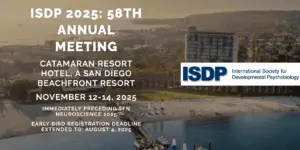🏄♂️ FYI Early-Bird Registration Deadline is Extended until August 4th – Abstract and Travel Award Application Notices to be sent out soon!!
🏄♂️ FYI Early-Bird Registration Deadline is Extended until August 4th – Abstract and Travel Award Application Notices to be sent out soon!!








